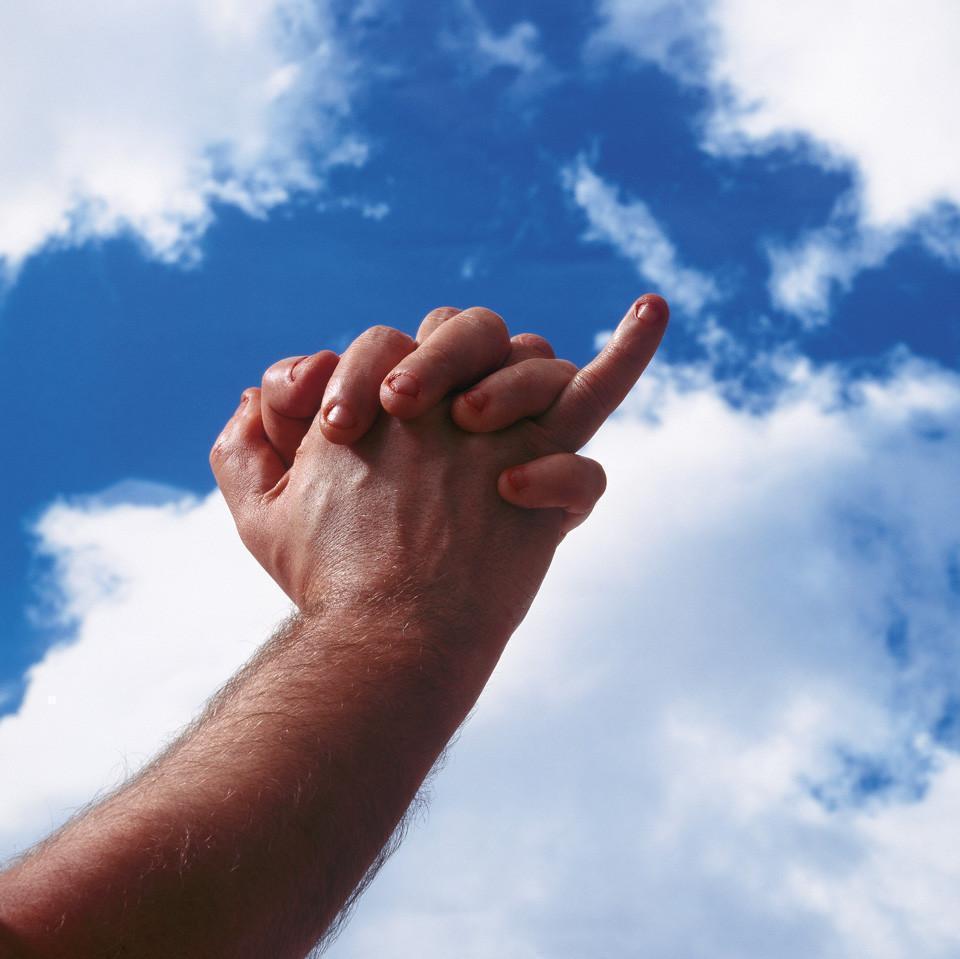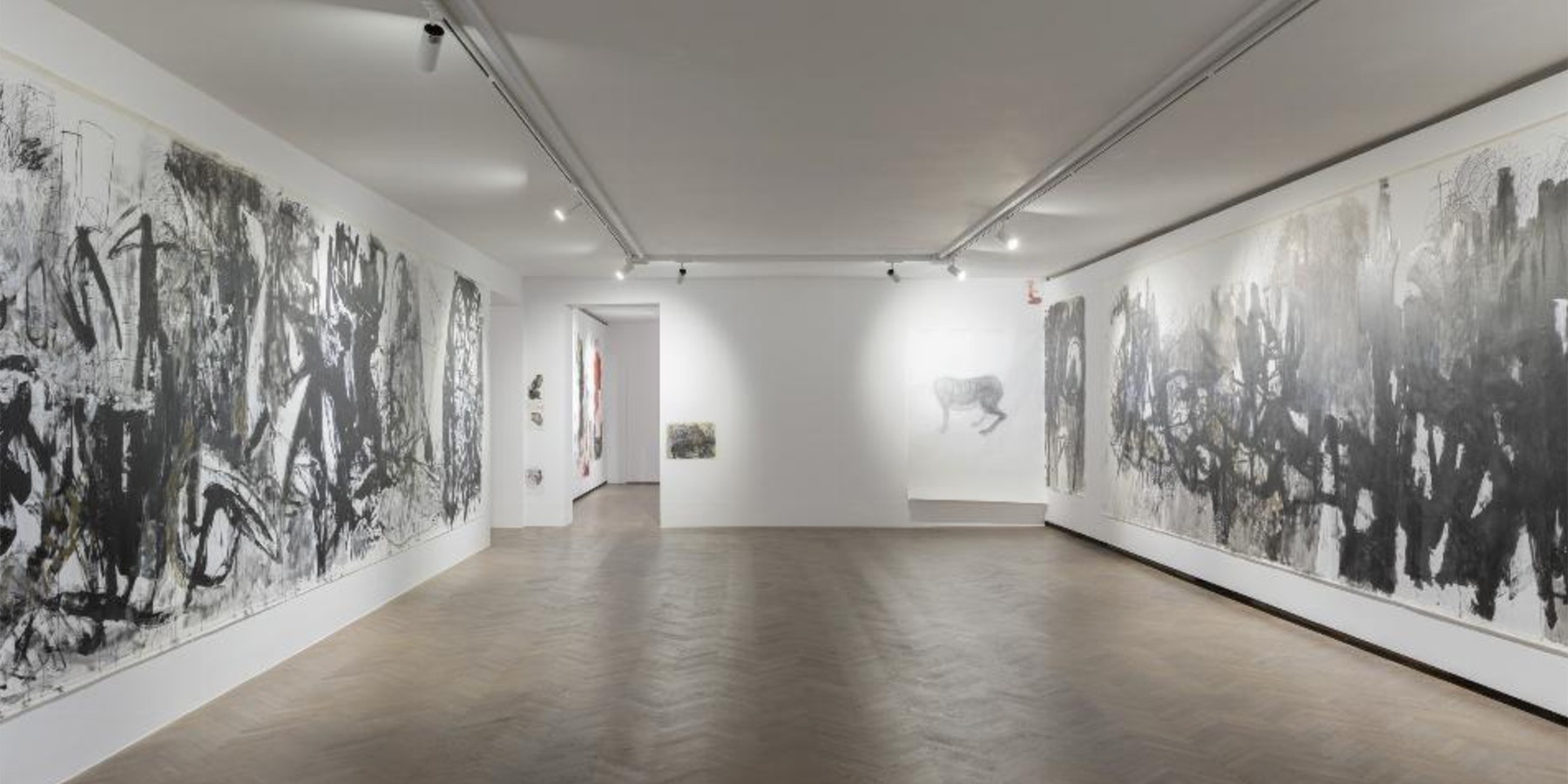Robert Rumas
Demosutra
Robert Rumas
Demosutra, 1994/2004, C-print on aluminium, 15 photographs, 50 × 50 cm each
Collection II of the Arsenal Gallery in Białystok. Work purchased by the Podlaskie Association for the Promotion of Fine Arts

Demosutra, a series of photographs by Robert Rumas, is very reflective of the main problems which appear in the objects and installations created by the artist. The work focuses on issues of religiousness and sexuality, often presented with a social and political commentary. The interventions, referring directly to the present circumstances and characteristic of Rumas’s work, have in this case been replaced by broader deliberations. The artist uses here a language which is more universal, thus opening up the work to numerous interpretations, all of which are equally justified. Rumas resorts to a “body language”, an extra-verbal code which is specific to all cultures and communities, and which is just as hermetic as it is natural and universally clear.
Demosutra is composed of fifteen photographs showing hands folded in different gestures, with the sky in the background. The associations are both religious and sexual, recalling also common “wordless” vulgarisms. The photographs have been described as a “mixture of prayer, eroticism, ecstasy, authority, sex, happiness, satisfaction”. Commenting on his work, Robert Rumas underlined the mutual permeation of spirituality and sexuality present in every religion. The gestures made by two hands speak of spiritual and amorous unity. The bitten nails, on the other hand, are meant to question its ideal nature.
The title of the work also leads one to see it as a political commentary. Demosutra evokes associations with democracy. Connecting the first part, which could be derived from the Greek word “demos” (the people), with the term “sutra” – referring to ancient Indian didactic and moralizing texts – permits an interpretation of the consecutive gestures as a group of formulas existing in society. The political message hidden between the lines leads to a question about their functioning, and about the broadly understood freedom: of speech, religion, convictions, or sexual orientation.
Izabela Kopania

PLAN YOUR VISIT
Opening times:
Thuesday – Sunday
10:00-18:00
Last admission
to exhibition is at:
17.30